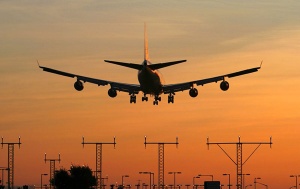ECJ ruling awards compensation for delayed flights

Airline passengers who are delayed by more than three hours should get the same compensation as if their flights have been cancelled, the European Court of Justice has ruled.
Under the landmark judgement, passengers whose flights are delayed can receive between €250 and €600, the same as if their flight was cancelled.
The ECJ has said passengers on delayed flights were in a “comparable situation” to those on cancelled flights, in terms of the loss of time.
It said: “There is no justification for treating passengers whose flight is delayed any differently when they reach their final destination three hours or more after the scheduled arrival time.”
Airline can only refuse to pay out compensation if the delay was caused by “extraordinary circumstances” beyond its control. These do not include a plane suffering technical problems.
ADVERTISEMENT
Under existing EU legislation, if the flight is delayed by more than five hours or cancelled completely, passengers can demand a full refund. Passengers under this five-hour threshold are entitled to a meal and phone call and if needed a hotel room overnight.
The EU’s attempts to enhance passenger rights had been held back by airlines as well as a disagreement over the difference between delays and cancellations.
Airlines have attacked the decision. Paul Charles, a Virgin Atlantic spokesman, told The Telegraph: “The idea that a technical fault is within an airline’s control is absurd. If it was within an airline’s control it would have been scheduled.”
“Judges who made this ruling are living in cloud cuckoo land. No airline would load passengers, luggage and fuel knowing that there would be a technical problem.
“Based on this formula airlines could find themselves having to refund far more than the cost of the original ticket.”
A British Airways spokesman added: “We will look on with interest to see if this ruling has any wider implications for the aviation industry. We continue to fully comply with the European regulations covering this area.”

